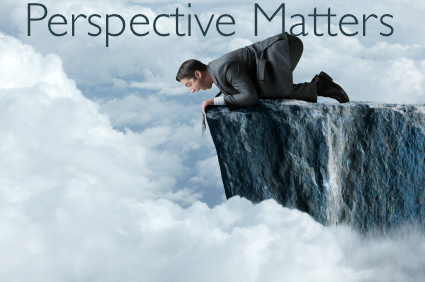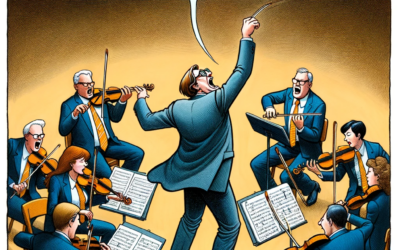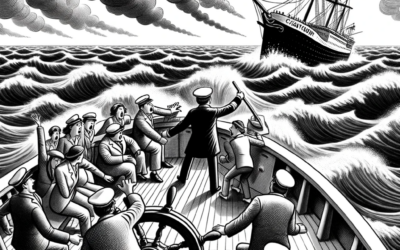 “A man is but the product of his thoughts; what he thinks, he becomes.” – Gandhi
“A man is but the product of his thoughts; what he thinks, he becomes.” – Gandhi
Social context affects the way you behave, think, and interpret the world. It affects whether you feel comfortable or uncomfortable. It can affect whether, in a particular environment, you succeed or fail.
Relative Deprivation Theory
We take our cues from the top. We don’t decide how well off we are based on an absolute, but based on our relative condition compared to others around us. You may be in the top 1% of the world population of wealth, but do you compare yourself to the entire world population or those in your immediate social bubble?
According to Relative Deprivation Theory, you take action for social change in order to acquire something that others have that you feel you are equally entitled to. You take action because you feel deprived relative to others in your social context (or bubble).
A recent study indicated that students ranked number two, three, four, etc. at Harvard did not do as well those who finished first in competing but lower-ranked schools. This phenomenon is based on how social context influences a person’s sense of self-efficacy. Being at the top builds confidence and allows you to set (or greatly influence) the social context. And if you’re not at the top in one social context, you’re probably better off elsewhere. If you can’t be number one at Google, go to Yahoo to become number one, and your star will rise.
Social Context Variables
Social context is determined by your immediate surroundings, so it can change quickly based upon where you are and who you’re with. If you are going to an event with friends who have high social status, you may feel like they lift your status. When my wife Chris and I went to hear Secretary of Education Arne Duncan speak in Minneapolis, the room was full and event personnel were moving people to watch him on monitors in a second room. Because we were personally invited by Sec. Duncan, we were seated on the stage, which attracted the notice of those who were being ushered out. Days later, at the airport, my status went in the other direction because I travel much less than I used to and, therefore, carry little influence. I moved from the front of the stage to coach.
Social status and context is not lost on us. I usually wear a Silicon Valley wardrobe of jeans, sneakers, and a blazer. The day we went to see Sec. Duncan, I suited up. Social status and context dictated that I show respect by dressing up. I wasn’t the one setting social context; Sec. Duncan was. And, in my view, he made a great decision to take off his suit coat and roll up his sleeves–thereby creating an informal, more conversational atmosphere.
Social Contexts for Leaders
My business grew at over 50% a year every year for 12 straight years and became one of the 5,000 largest employers in the United States. We received a lot of press, and I was frequently asked to join bank, for profit, and NGO boards. In the world of entrepreneurs, I had rock-star status. Today, rather than being a rock star, I coach them. I have more skills now than I had when running and growing our business, but my social status has changed. The groups that would have sought me out in the past would likely not even know who I am today. And yet, among many leaders, my status has grown because of referrals and recommendations from rock-star clients.
Social Contexts for Organizations
One of my clients is a global 100 company. To work in this company you must always appear industrious. When someone asks you how are you, the appropriate answer is, “Very busy.” In this organization, even if you get all your work done and are proactive on projects because of great leadership and delegation, you would never let anyone know the truth–that you effectively manage your organization and your time. The social context has been set, and those who don’t play, don’t stay.
As a leader, it is up to you to set the organization’s social context–much like Sec. Duncan did when taking off his jacket and rolling up his sleeves. He was giving the signal that we are going to be informal with one another.
What is the social context of your organization, and what levers do you use to control the way people act and interact?
Social Context and Youth
Talk to any young person to know what the social context is for a given situation or place. Developmental psychology will tell you that young people have a strong desire to fit in. They want to get a sense of the rules and who dictates the rules before they act. The fear of embarrassment generally exceeds the desire to contribute. As they get older developmentally, they will, like you, want to test social context and demonstrate their authority.
They will want to see if they can be the biggest fish in this particular pond. If they aren’t or can’t be, the future leaders among them will likely decide to swim in another pond. They will seek to set the social context.



